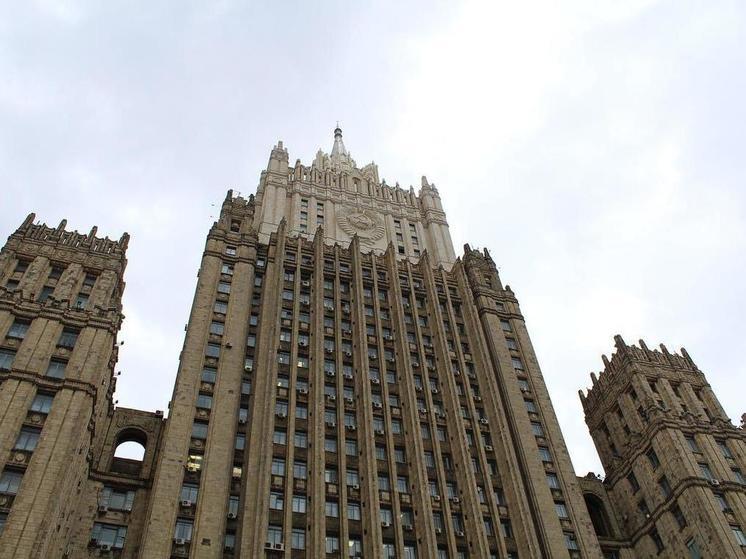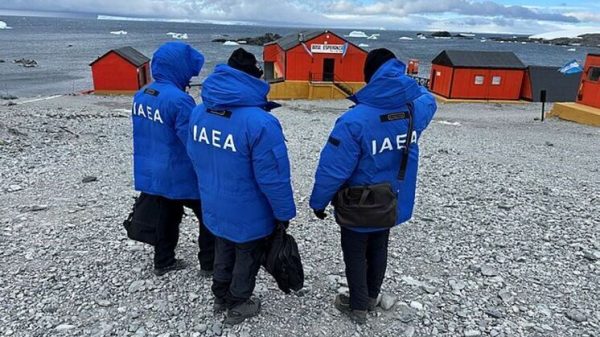Russian diplomats face a virtually unplowed field
Yerevan responded promptly to the criticism that the Russian Foreign Ministry leveled at the new school textbook on Armenian history. The republican Ministry of Education, Science, Culture and Sports promised to correct the wording that caused Moscow's sharp displeasure. We recall that this concerns the interpretation of historical events related to the entry of Eastern Armenia into the Russian Empire: in the updated Armenian textbooks, this is called «annexation».

«Such a presentation is capable of causing shock in any historian,» the Russian Foreign Ministry was indignant. «If you read serious sources, including Armenian ones, you can see completely different approaches to the peace treaty of 1828 (referring to the Treaty of Turkmenchay, which ended the Russo-Persian War of 1826-1828. — «MK»).
Until recently, it was assessed in republican textbooks as having «colossal significance for the future restoration of Armenian statehood.» To question the special role of the Russian Empire, and subsequently the USSR and Russia, in the formation of today's Armenia means going against well-known facts. This is yet another shameless attempt to rewrite our common history.»
One can only agree with the indignation of our Foreign Ministry. It is surprising, however, that the attention of Smolenskaya Square is riveted only to Armenian textbooks. One only has to look around and one can find a lot of other examples of the same kind. And also not so far away — in the near, and sometimes extremely friendly, as, at least, considered, abroad.
Here, for example, are some selected places from the work program of the subject “History of the Tajik people” for 2023-2024, approved by the director of the secondary school named after M.V. Lomonosov city of Bokhtar (Republic of Tajikistan), where education is conducted in Russian: “Central Asia on the eve of the invasion of Tsarist Russia… Invasion of Russian troops into Central Asia… The end of Russian occupation… The state of the indigenous peoples of Central Asia during the colonial period. .. The reason for the anti-colonial struggle in Turkestan.»
And this is a Kyrgyz textbook (on the history of Kyrgyzstan for the 11th grade): «Russification of Turkestan, as the basis of colonial-nationalist policy, was increasingly intensified by the beginning of the 20th century … The migrant peasants treated the Kyrgyz with contempt, seized water sources, cut off the water, forcing the local population to abandon their plots and migrate.
During trade deals, the Russians, taking advantage of the poverty of the Kyrgyz, bought almost year-old lambs from them for 80 kopecks, calves — for one to one and a half rubles. Often, under various pretexts, the cattle was simply taken away… It became the order of the day to shoot a Kyrgyz who stood up for his land and his rights. Driven to despair by colonial oppression, the people were forced to rise up with weapons in their hands for an open liberation struggle…»
Here is a presentation «Colonial Policy of Tsarist Russia in Turkestan», found on the website of one of the Uzbek universities: «Features of the colonial system: complete isolation of the Turkestan region from the outside world, termination of their independent economic, cultural and political ties; creation of Russian settlements in the region by resettling peasants who fled from central Russia due to hunger and landlessness; the model of colonialism provided for conducting all office work in Russian; the local population could only work in auxiliary jobs.»
The list of such countries and similar educational materials, let us clarify, is not only incomplete, but has barely begun. «In all former republics of the USSR, joining Russia is interpreted as a national tragedy,» states historian and political scientist Igor Shishkin. «Even in those whose titular peoples themselves sought to accept the Russian tsar under their rule (Kazakhs, Georgians, Moldovans). Then, as befits, the period of Russian colonialism, Soviet oppression and the national liberation struggle. The collapse of the USSR — the acquisition of freedom, the embodiment of the centuries-old dream of the people (name), victory in the national liberation struggle.»
In short, a practically unplowed field stretches out before Russian diplomats. As they say, the Ministry of Foreign Affairs was not lying around. But it is quite possible that Armenia is only the beginning of the «hellish work.» Why was it decided to start with Armenia? Well, first of all, you have to start with someone. Why not start with Armenia, especially since it starts with the letter «a»?
However, there is another explanation, and it is perhaps more plausible. According to this version, the close attention of the MFA to Armenian educational literature has approximately the same nature as the interest of the Rosselkhoznadzor in food products from countries whose relations with Russia are, let's say, not in the best phase of their development. As we know, harmful stalks, microbes, pesticides and other deviations from phytosanitary and veterinary standards are most often discovered at moments of aggravation of these relations.
Armenia and Russia are also far from having a honeymoon right now. And Yerevan, apparently, will not get off with tomatoes.























































Свежие комментарии